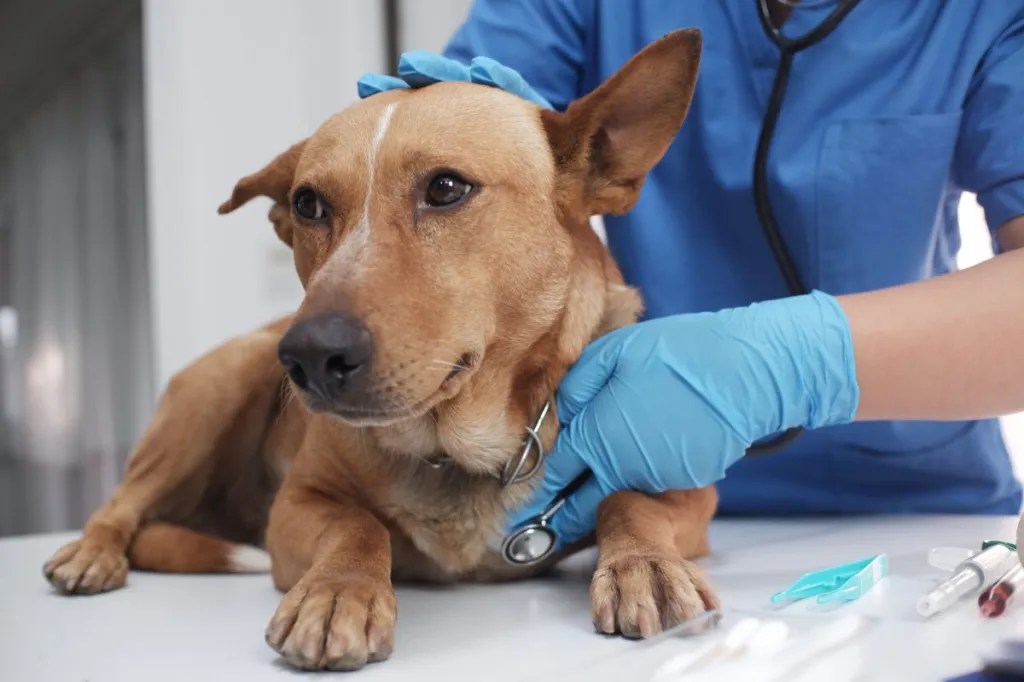When your furry friend is dealing with a bout of diarrhea, it can be distressing for both of you. You might have heard of Imodium (loperamide) as a common remedy for human diarrhea, but did you know it’s also sometimes used for dogs? Let’s dive into everything you need to know about using Imodium to treat your canine companion, from the basics of how it works to the important details about dosage and potential side effects.
What is Imodium and How Does It Work in Dogs?
Imodium is a medication primarily used to reduce the frequency of diarrhea. It’s an over-the-counter medication in human pharmacies, known chemically as loperamide. This drug works by slowing down the movement of the gut, which allows more water to be absorbed from the feces and results in firmer stools.
Mechanism of Action
In dogs, Imodium works similarly to how it works in humans. It targets the receptors in the intestinal walls and slows down intestinal motility. By doing this, it helps to increase the absorption of nutrients and fluids back into the body, which makes the stool less watery.
When Is It Appropriate to Use Imodium for Dogs?
While Imodium can be helpful in certain situations, it’s not suitable for all cases of diarrhea in dogs. Diarrhea can be caused by a myriad of health issues, ranging from simple dietary indiscretions to serious infections.
Suitable Scenarios for Imodium Use
- Mild to moderate non-infectious diarrhea: For instance, diarrhea caused by dietary indiscretion (like your dog eating something they shouldn’t have).
- Stress-induced diarrhea: Sometimes, just like humans, dogs can get upset stomachs from stress.
When to Avoid Imodium
- Puppies: Due to their developing bodies and different metabolism, many over-the-counter medications used in adults are not safe for puppies.
- Dogs with underlying health conditions: Such as those with liver disease, kidney disease, or certain gastrointestinal conditions like colitis.
- Diarrhea caused by toxins or bacterial infections: Using Imodium can trap these pathogens in the intestines, potentially making the situation worse.
Recommended Dosage of Imodium for Dogs
Determining the right dose of Imodium for your dog is crucial. The standard recommended dosage is typically 0.1 mg/kg, administered twice a day. However, the dose can vary based on the size of your dog and the severity of the symptoms.
Dosage Guidelines
Small Dogs: For small dogs, a lower dose is crucial to avoid overdose symptoms. It’s generally recommended to start with a minimal dose and only increase if necessary, under veterinary supervision.
Large Dogs: Larger dogs might require a slightly higher dose, but it should never exceed the recommended upper limit of 0.1 mg/kg twice a day.
Veterinary Input
Always consult with a veterinarian before administering Imodium. A professional can provide a precise dosage tailored to your dog’s specific condition and medical history.
Possible Side Effects of Imodium in Dogs
While Imodium is generally safe when used correctly, it can cause side effects in some dogs. Being aware of these can help you spot any problems early, ensuring your dog stays healthy.
Common Side Effects
- Constipation: This is the most common side effect, as the drug works by slowing down intestinal movement.
- Bloating and gas: Some dogs might experience bloating and gas due to decreased movement in the gut.
- Sedation or hyperactivity: Depending on how your dog reacts to the medication, they might become unusually sleepy or unusually hyper.
Serious Side Effects
- Pancreatitis: In rare cases, dogs can develop pancreatitis, a serious condition that inflames the pancreas.
- Intestinal obstruction: If too much slowing of the gut occurs, it can lead to an obstruction, which is a medical emergency.
Conclusion: Balancing Treatment and Safety
Using Imodium to treat your dog’s diarrhea can be effective, but it’s not suitable for every dog or every situation. It’s essential to work closely with your veterinarian to ensure that you are using the medication safely and effectively. Remember, when it comes to the health of your beloved pet, it’s always better to err on the side of caution.
- Best Dun & Bradstreet (DNB) Alternatives for 2025 - April 19, 2025
- Best 6sense Alternatives for 2025 - April 18, 2025
- Best Instantly.ai Alternatives for 2025 - April 18, 2025



